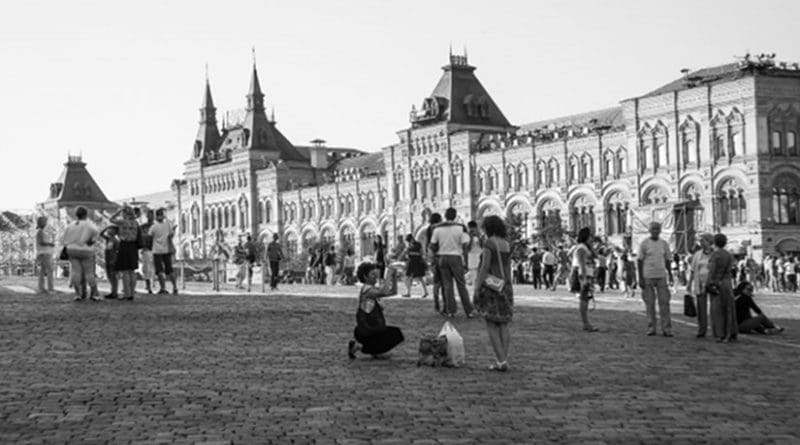Post-Soviet Generation Lacks Feeling For Inter-Ethnic Relations
By Paul Goble
The generation born in 1991 or later lacks the positive promotion of inter-ethnic relations of their parents and thus is “lost” as far as promoting good ties between people of different national groups in the Russian Federation, according to the head of the Kazakh national autonomy in Moscow.
In a speech to a conference on nationality policy at Moscow State University, Polad Dzamalov, the president of the Kazakh national-cultural autonomy of the Russian capital, said that “we have lost” this post-Soviet generation because “for them, the understanding of inter-ethnic relations does not exist” (www.vestikavkaza.ru/news/obshestvo/meznaz/33634.html).
And like other speakers at the session, the ethnic Kazakh leader pointed to “the positive experience of the Soviet Union is the solution of such problems and [underscored what he and they view as] the negative influence of the absence of a clearly-defined nationality policy in the succeeding years.”
Other speakers were even more negative: Ivan Fomin, the editor of the journal “Sokrat,” stressed that “nationality policy is a derivative of government policy more general” and that continuing “inertia” in this area “can lead to the splitting up of Russia into separate ethnic fragment-states.”
That need not be the case, participants at the roundtable said, with several pointing to “positive” approaches in other countries including the Peoples Republic of China. But most of the experts, activists, and officials at the session appear to be extremely pessimistic about the future.
Indeed, the problem may be even more difficult to resolve than they suggest. If Dzhamalov is right that the generation born since the end of the Soviet Union or whose members have entered into conscious life during that time, this cohort forms roughly half of the population in most post-Soviet states.
In the non-Russian countries, most of which have organized themselves as nation states, the shift in values that Dzhamalov decries may in fact help them solidify their national identities. But in the case of the Russian Federation, this shift may make it impossible to maintain social stability and civic peace in the near term expect at extremely high levels of coercion.
In a 6,000-word article in the current issue of “Oktyabr,” Aleksandr Tarasov writes about one aspect of this generational shift, the right-wing xenophobic nationalism of many football fans, most of whom are drawn from younger age groups and thus reflect an extreme form of the problem Dzhamalov is referring to (magazines.russ.ru/october/2011/2/t8.html)
Entitled “The Swastika at the Stadium,” Tarasov’s article traces the way in which this young subculture is increasingly affected by nationalistic ideas, yet another reason for pessimism about the rising generation, precisely the people in whom so many in the West have placed so much hope for the future of Russia.

